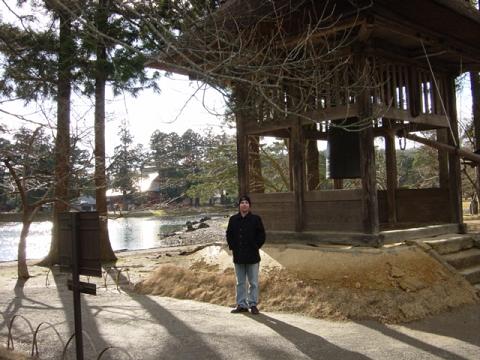Quoting from Horvat's "Japanese Beyond Words"
"On a Japanese airline, customs declaration forms are tucked in plane seat pockets for the benefit of passengers. But since the airline expects only Japanese nationals to make customs declarations, the forms made available are only in Japanese.
Recently a Japanese-speaking foreign passenger was spotted by a cabin crew member filling out the customs declaration in Japanese. The junior cabin crew member asked if the passenger would prefer to have an English-language form. The passenger said no.
"At that point, a purser arrived on the scene and again offered the foreign passenger an -language customs declaration form. "English-speaking passengers find the English forms more convenient," the purser insisted. At this point, the Japanese-speaking passenger lost his temper and a verbal altercation ensued in which the English-speaking Japanese crew spoke only in English and the Japanese-speaking foreign passenger spoke only in Japanese.
"Virtually every foreign speaker of Japanese has an arsenal of such stories. Mechanically trained cabin crew regularly give Japanese newspapers to passengers with Asian physical features and English newspapers to all others. When a passenger who does not have Asian facial features is found by Japanese cabin crew members to be engaged in the unnatural act of reading a Japanese newspaper, such a passenger is invariably asked, "Can you read Japanese?" The question is always asked in English.
"In the past, when Japanese was spoken by more than a hundred million people with Asian features and no more than a handful with slightly different physical features and cultural backgrounds, the blurring of linguistic boundaries presented little difficulty for anyone except perhaps the few thousand non-native speakers who had reached unexpected levels of competence."
"Since many such speakers were so-called "mishkids" (sons and daughters of missionaries), most had been brought up in a bilingual and bicultural environment and could accommodate themselves both to the exaggerated positive and the occasionally negative reactions of native speakers reacting to the invasion of what they perceived to be sacred, cultural space."
Blog Archive
-
▼
2006
(31)
-
▼
December
(14)
- Racist / Eurocentric World Maps
- Christmas in Japan
- Shinkansen Bullet Train Window View Tokyo Heading ...
- "The Other"
- The Food Post
- Language is a Fight! part 1
- Big Crime News in Tokyo
- Q&A: Teaching English in Japan
- (Pop) Cultural Absence of Knowledge 3 - Karate Kid
- (Pop) Cultural Absence of Knowledge 2 - Modern Japan
- (Pop) Cultural Absence of Knowledge 1 - Language
- Cars and parking in Tokyo
- Crime again
- The crooked nail gets hammered down
-
▼
December
(14)
Subscribe to:
Post Comments (Atom)

No comments:
Post a Comment